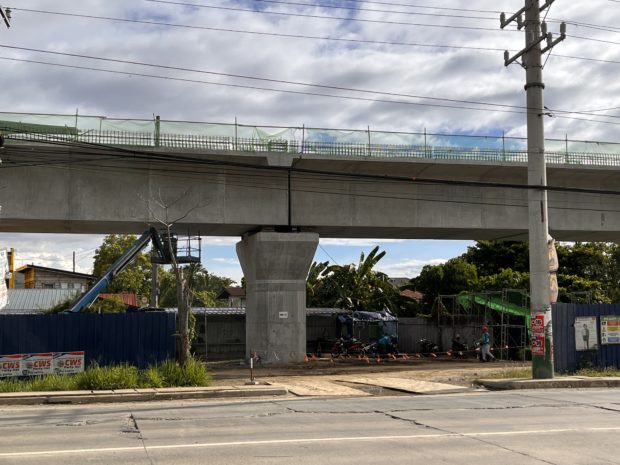Foreign financing for ongoing railway projects has offset slower public works disbursements due to this year’s election ban, such that total infrastructure spending inched up 3.1 percent to P434.5 billion as of end-May.
The latest Department of Budget and Management (DBM) data on Tuesday showed that the total amount spent by the public sector on infrastructure from January to May exceeded the P421.5-billion outlays a year ago. The overall infrastructure disbursements reported by the DBM included infrastructure components of subsidy and equity injected to state-run corporations, as well as transfers to local government units.
The national government’s infrastructure disbursements during the first five months reached P334.6 billion, up 0.7 percent from P332.3 billion a year ago.
In the month of May alone, expenditures on infrastructure and other capital outlays rose 2.1 percent year-on-year and 26.2 percent month-on-month to P80.5 billion.
In the report, the DBM attributed the year-on-year rise in the government’s infrastructure spending to “the increase in constructive receipts of cash payments of the Department of Transportation (DOTr) for the Malolos-Clark Railway project and the Metro Manila Subway project-phase 1, and capital outlay projects under the Armed Forces of the Philippines modernization program of the Department of National Defense (DND).”
To recall, the Duterte administration’s economic team had sought election-ban exemption for projects being rolled out using official development assistance loans and grants.
One-off capital expenditures like the construction of the new Senate building in Bonifacio Global City also offset the Department of Public Works and Highways’ lower spending due to the 45-day ban imposed ahead of the May 9 presidential elections, the DBM said.
The DBM released in June some more infrastructure-related allotments, including P30.3 billion for the DOTr’s North-South Commuter railway system and Metro Manila Subway-phase 1 projects, plus P10.3 billion for the DND’s revised AFP modernization program. INQ
